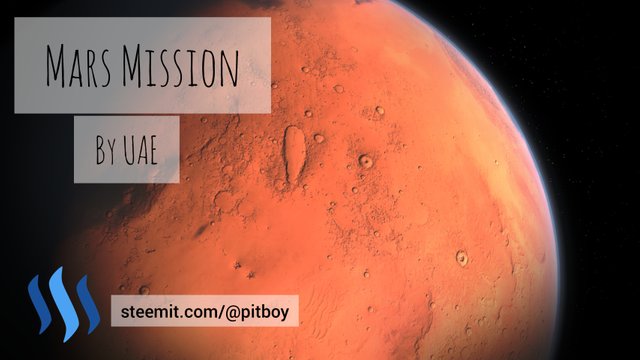Meet Hope: First Arab's Spacecraft to Mars
The oil business is no longer enough for the UAE. Their vision is now in space. The country has built a spacecraft in about five years.

The filling of fuel will start next week. This unmanned spacecraft has been named 'Al-Amal'. In Arabic it means 'hope'.
If all goes well, the spacecraft will take approximately seven months to reach Mars, located at a distance of 493 million kilometers.
One year in Mars is 687 days. During this time, the spacecraft will orbit Mars. It will take 55 hours to orbit Mars once.
Amal will gather information about this pink planet by orbiting. The director of the project, Sarah Al-Amiri, told a news conference that the mission would open the door for young scientists in the country to join the 'space engineering' profession.
The spacecraft is scheduled to launch on July 14 from the remote island of Tanegashima in Japan. The coronavirus has forced the engineers involved in the project to stay in quarantine so the journey has already been delayed once.
The spacecraft, powered by a Japanese rocket, will have three types of sensors. Whose job will be to measure the complex atmosphere of Mars. The spacecraft will have a 'multiband' camera with a very powerful 'resolution'.
Which is capable of taking pictures of fine objects. There will be an 'infrared spectrometer' to measure the surface and bottom of the planet's atmosphere. Which was created by Arizona State University in the United States. A third sensor will measure the planet's oxygen and hydrogen levels.
Sarah Al-Amiri says one of the tasks of the mission is to try to understand why these two important elements, which are needed to make water, are not present in the Martian atmosphere.
Sir Ian Blatchford, director of the UK's Science Museum Group, said: "All the spacecraft that have been sent to Mars in the past have focused on geology. But this time an overall picture of Mars' climate will be available."
The UAE's link to space science is not new. Earlier, the country sent a rocket to orbit the earth. Last year, the first UAE citizen flew to the International Space Station in a Russian spacecraft.
Prince Sultan bin Salman Al-Saud of Saudi Arabia was the first Arab to go into space. He flew with an American spacecraft in 1985.
.jpeg)
Prince Sultan Bin Salman Al-Saud in Space. Source
However, this attempt to send a spacecraft to Mars is the most ambitious for any Arab country. Monica Grady, a professor of space science at Britain's Open University, says the mission signals a huge shift in space travel.
Earlier, the world's most powerful countries have maintained dominance in space science.
She says, "This mission is a real step forward in the search for Mars. Because it means that countries other than the European Space Agency and the US NASA can go to Mars. Hopefully they can get there. There has a long history of being failed though."
The leaders of this project are informing the world that eight centuries ago, Arab scientists were far more advanced than many developed countries today.
At that time, they were at the forefront of scientific discovery. Today, the ambitious ruler of Dubai wants to rekindle that cultural arrogance through this mission.
At the same time, they want to move away from the dependence on oil to something new. If this mission is successful, the country will surprise the world in exactly 50 years of it's establishment.